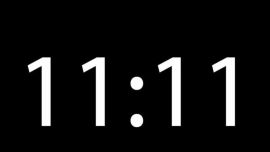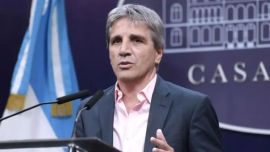Hegel remarks somewhere that all great world-historic facts and personages appear, so to speak, twice. He forgot to add: the first time as tragedy, the second time as farce.” (The Eighteenth Brumaire of Louis Bonaparte, Karl Marx, 1852).
Having come full circle, Argentina is once again at the Washington, DC doorsteps of the International Monetary Fund, begging for a loan to quell a currency crisis that has flared into a full-blown economic and political crisis. While the causes can be traced to a tectonic shift in global finances that marks the end of cheap money — used to prop up the world’s leading economies after the Global Financial Crisis of 2008 put them on their knees — the wound is largely self-inflicted, begging the question as to why Argentines and a host of world leaders looked upon Mauricio Macri and his team of CEOs and political scientists as geniuses. Alas, just months ago, Macri’s decisive victory in midterm elections politically castrated Cristina Fernández de Kirchner, putting an end to the fears of a return to populism, as inflation continued to creep down, excruciatingly slow, and the economy appeared to be picking up steam. Not only must we question Macri and his political decision-making, but we must remain extremely weary of the IMF, an institution that has proven it is an expert in helping fragile economies hit the detonator.
“The International Monetary Fund’s Christine Lagarde said on Thursday that the lender is seeking a rapid resolution for talks with Argentina over the establishment of a stand-by agreement. That did little to calm the world’s worst currency on Friday,” read a piece by Bloomberg, ahead of the market close which saw the Central Bank, led by Federico Sturzenegger, inject at least US$1.2 billion to help push the dollar below $24 after it hit new all-time highs throughout the week. Friendly economists coincided with Lagarde, with JP Morgan’s Facundo Gómez Minujín noting the “macroeconomic fundamentals” looked solid. A hyperactive Macri helicoptered across Buenos Aires to shore up support, tweeting pictures of a meeting with Peronist governors, joining wunderkind María Eugenia Vidal in a political event, and then inviting leaders of the business elite to the Presidential residence in Olivos to tell them everything would be ok. The show must go on.
The political and economic mismanagement that Macri and his team have engineered has now clashed head-on with the financial headwinds of a shift to dollar-denominated assets that everyone knew was coming. Indeed, the Federal Reserve started raising rates in 2017 under Janet Yellen in order to normalise monetary policy after nearly a decade at the zero-bound, a policy that current Chairman Jay Powell has explicitly supported and continued. That the crisis has international ramifications is obvious given the impact on other so-called emerging market economies, from Turkey to Brazil, with the MSCI EM currency index nosediving in late April, erasing all its gains for the year and throwing markets into turmoil. One doesn’t have to be an investment banker to realise that a country hitting a record trade deficit of US$8.5 billion last year, with a massive and stubborn fiscal deficit, persistently elevated inflation expectations and an overvalued currency is ill-suited to face an adverse global macroeconomic environment.
Macri’s economic team convinced the President that the only way out was international debt-financing. From his first Economy Minister, Alfonso Prat-Gay, to the current decision-makers that include Economy Minister Nicolás Dujovne, Finance Minister Luis “Toto” Caputo, the Maquiavellian Marcos Peña (Cabinet Chief) and his deputies Mario Quintana and Gustavo Lopetegui, they all agreed the one good thing the previous administration had left behind was a low debt-to-GDP ratio. To the point where they even sold a 100-year bond. Debt-financing would replace investments until the country gained the trust of the international community.
Investment, it turned out, proved fickle, as global funds took advantage of juicy yields and deployed their capital into short-term debt. Some industries gained, including construction, the agro-exporting sector, and the financial sector of course. But this wasn’t enough to lead to a top-to-bottom flow of economic growth. And when the tide turned, so did the flow of dollars.
Macri has lost precious time, and a whole lot of foreign exchange reserves, with inefficient economic policies. Forcing the Central Bank to reverse its orthodox anti-inflation policies didn’t produce growth and eroded Sturzenegger’s credibility. Inflation took off and growth never came. Even worse, dollar strengthening put strong upward pressure on inflation as the Central Bank tried and failed to sustain an undervalued peso. The ruling Cambiemos (Let’s Change) coalition has continued the Kirchnerite policy of government-handouts in order to “guarantee governability” while aggressively raising prices on public services, hitting the middle class the most. Internal price-imbalances mean inputs are expensive and, given the overvalued currency, so is labour, meaning productivity is disastrous. And the tax burden is one of the highest in the world.
Enter the IMF. Argentina will supposedly gain access to the stand-by arrangement which comes with conditionality, or a set of strict, classical economic “suggestions” including lowering deficits, devaluing the currency, and even privatisation. While these aren’t bad in of themselves, the IMF has an incredible track record of economic disaster, starting with Argentina in 2001 when the country imploded and defaulted. Indeed studies have shown involvement by IMF and World Bank as being negatively correlated with economic growth and increased investment, as Bill Easterly showed in “The Ghost of the Financing Gap.”
“This IMF is different from 20 years ago,” Dujovne says. Just ask Greece, which received two IMF-backed bailouts since 2010 and remains stuck at GDP growth of less than 2 percent and levels of indebtedness that are dramatically higher than before the crisis.
Macri’s greatest success has been to convince the world that he is a skilled statesman that deserves their trust. Let’s hope the IMF agrees on benign terms and that Macri rolls up his sleeves, leaves behind the electoral speculation, and consumes his political capital to fix the country. The ghost of Cristina is gone, but the ghost of the IMF has now become real.























Comments